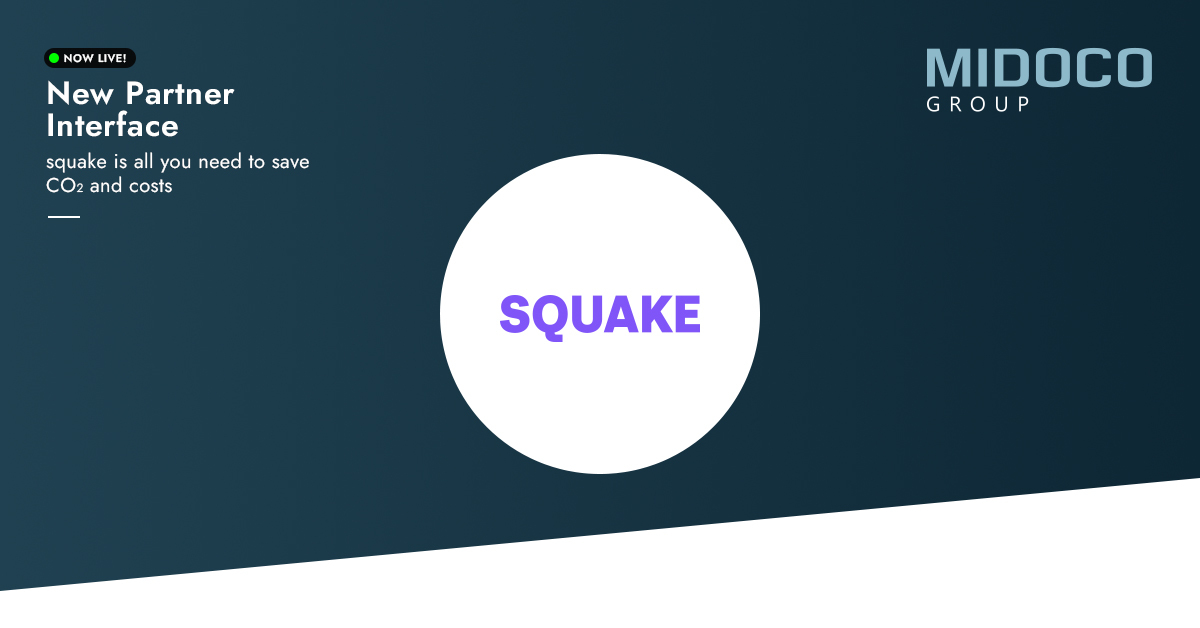History of Airline Distribution
In the 1950s the airline distribution concept was fairly simple. The only way to buy a ticket was through a travel agency. At that time a very manual process with the airline ticket for a seat on a flight was the only choice. As the market grew and scaled up and technological development kicked in the airlines were in need for a technological solution to handle the growing number of customers. This need resulted in the birth of the GDS.
A system that enabled travel agencies to book airline seats on flights from a to b and issue a ticket. Because the GDS only handled the booking of a ticket, the BSP was founded to run the entire billing of airline tickets in the then-only indirect airline distribution world. Soon, the GDS became independent of the airlines and over the years developed very efficient technological solutions. Technological development never stops and will over time create new needs and new markets. So the same way the growing markets for passenger flights gave birth to the GDS, the internet gave birth to direct airline distribution. In the 1990s, when the internet started growing, airlines took the opportunity to reshape their business models. The traditional airlines started selling tickets on their websites using the old systems. New airlines arose that skipped the ticket procedures and just issued order confirmations with booking codes that the customer shows when boarding.
The big idea behind this approach was to maximize profit by breaking down the ticket into several order items. In the old days a flight ticket contained all elements of the flight service, including transport from A to B, seat, meals, room, boarding priorites, entertainment, etc.. By leaving the ticketing system, the airlines have the option to split up the entire service into single-order items that can be combined and purchased as you like. This is where NDC comes into the game. NDC is the messaging format, enabling airlines to run those business models. At the same time airlines are able to control their pricing structure and sales efforts in a better way.
NDC Overview
What is NDC?
NDC (New Distribution Capability) is an XML-based data transmission standard. The current limitations of the old approach have become more and more evident with the internet evolving and opening new opportunities.
What are the goals of NDC?
The idea behind NDC is to enhance the communication capabilities between airlines and travel agents and to make the standard accessible to any third-party stakeholder to implement and use. These are intermediaries, IT providers, or non-IATA members. NDC aims to transform the way airline products are retailed to corporations, leisure travelers, and business travelers. NDC also has the aim to replace the old data formats, which are spread out between GDS, airline and settlement organisations, leaving airlines with only a part of the truth in their own systems, limiting them to selling only tickets and some predefined additional services via well known sales channels, which are controlled by third-party organisations.
Who is involved in NDC?
Companies involved in the process of developing the NDC standard and related services such as One Order are airlines, GDSs, travel management companies, online travel agencies, midoffice providers and aggregators. All of them contribute to the development of the NDC standard through a collaborative approach.
NDC State of Develeopment
Where is NDC today? NDC is work in progress. There are several aspects currently being discussed in workgroups. The discussions evolve around:
- Direct sales
- Agency sales
- PCI/DSS
- One Order
- TIDS
- GDS developments regarding NDC
- Sharing experience with integrating aggregators and defining a new unified back-office notification standard
- New ideas about notifications (of flight time changes, amendments)
- Best Practices
- Look to book ratio
- Technical subjects (programming)
- Servicing
- Different capabilities of several airlines
Check out our report on the IATA NDC workshop in Miami 2019 (bottom of the page) to get a picture of current discussions on the development of the NDC standard.
NDC Pros & Cons
Pro
- Customising - Rich content capability
- Customising - Personalised shopping experience
- Customising - Product differentiation & Product time to market
- Business opportunities - More information available which can add value to TMCs offers
- Business opportunities - Greater variety of products and services can be offered
- Business Opportunities - Woo customers through more targeted marketing
- Cost - So far no additional cost per transaction
- Cost - Savings
- Efficiency - XML based
- Efficiency - Access to a more streamlined purchasing experience
- Effciency - Streamline content for consistency
- Efficiency - There are different certification levels of the standard
- Efficiency - One standard for all (GDS, TMCs, …)
- Efficiency - Streamline offer and order managment
- Market - GDSs Amadeus, Sabre and Travelport have a level 3 NDC certification
Contra
- Cost - Intransparent pricing
- Cost - Economics of NDC not clear
- Cost - Implementation cost to connect
- Efficiency - Limited fare comparison possibilities
- Efficiency - Lack of information
- Efficiency - NDC is not required. No unilateral Implementation
- Market - May push bookings away from travel agent to online
- Market - More competition because of direct sales
What are the challenges of NDC?
A key challenge for the NDC standard is to achieve broad acceptance in the market. This appears to be difficult due to the inconsistencies in the usage of the NDC standard and the comparably better-performing GDS systems. Agencies and TMCs seem to wait for GDS implementations to make their lives easier.
Development of opinion on NDC
Molly Dyson from buying business travel states that a recent survey conducted by buying business travel found that the group of travel managers in favor of NDC has decreased from 35% in 2017/18 to 26% in 2019. The number of people feeling uninformed has increased significantly. Of course, this does not support a positive attitude towards NDC. An additional figure shows that people doubting the benefit of the new airline distribution strategies have increased by approximately . 50%, from 39% to 59%.
MIDOCO & NDC
NDC Enabler
We see ourselves as NDC enablers. NDC has opened the door to an entire new approach to airline distribution. MIDOCO is a company that has specialized in enabling companies to focus on growing their businesses by providing a tool that optimises and automates workflows by consuming all the data from different sales systems and generating a unified after-sales process. This empowers companies to concentrate on sales. Extending sales capabilities is one of the goals that NDC is aiming for.
How does MIDCOO support travel management companies, tour operators, travel agencies and OTAs to take advantage of the NDC standard in their context ?
First of all, MIDOCO connects various booking sources into one system, delivering an order-based view of the order items of a booking. This is comparable to the One Order concept of the airlines, with the intention of addressing the sales organisations. With this setup, MIDOCO is NDC-ready and can process any NDC booking and put it in the context of an order related to a customer. The second step after adding NDC-capable platforms to your product portfolio is to include direct-connect booking channels in your process landscape. MIDOCO will automate the interpretation of incoming messages, apply transaction fee rules, and many other steps of your workflows that follow a direct connect booking.
Have a look at how the MIDOCO features can decrease your downstream manual workload. Choosing MIDOCO enables you to take an easy step forward into profiting from the advantages of the NDC format. MIDOCO enables customers to use a mixture of direct-connected and legacy systems such as GDS in parallel.
NDC for TMCs
What are the key aspects of NDC for TMCs?
The main goal of a TMC is to meet their clients travel needs, respecting their travel rules, reporting, and invoicing constraints. As technology evolves, clients want to benefit from these improvements. Especially being an early adopter can put a TMC in a beneficial competitive position. Using a mix of booking channels is the result. The changes in travel distribution break up a long established content parity. Airlines want to improve the travel experience and be part of the travel retail process. NDC is the standard that enables airlines to follow this path. Since TMCs need to deliver the best solutions for their clients and content parity has been broken up, they need to get access to the full content. Basically, TMCs have three options to become NDC ready
- Wait for GDS to deliver access to NDC enabled airlines.
- Use third party providers to get access to NDC
- Build internal NDC solutions in their own environments
How can TMCs get involved in NDC development?
The Global TMC Executive Council (GTEC) is a platform provided by the IATA for TMCs to engage in NDC development and for the IATA to understand the needs of the TMC community. Sourcing content has become one of the major challenges for TMCs. This means that TMCs have a growing need for aggregators that provide access to full content. As TMCs aim to run cost-effective travel management for companies, analytics as well as backoffice processes play an important role. Working across different channels increases the variety and complexity of workflows, a challenge that TMCs need a solution for if they want to profit from NDC as a technological improvement.
NDC for Travel Agencies
Coming from a single stream retail setup regarding travel retail travel agencies are facing a completely new competitive environment. For decades travel agenices and GDS were the only way to sell and buy travel products. Even though NDC still isn't processing a significant part of the market, new channels are developing constantly. Direct sales through airlines increasing constantly, generating pressure on the travel agency position. For travel agencies this means that they need to rethink their strategies and either invest in these upcoming new developments for their own benefit or lose more and more ground. This also means that travel retail becomes more diverse and solutions that capture this diversity like MIDOCO are important to survive. As we see it, even more than ever.
NDC for OTAs
The idea of OTAs is to make the consumer feel comfortable, providing usability throughout the booking experience, including comparison, combination, and personalization of offers. This is basically one of the drivers of NDC. NDC empowers airlines to become more personal, driving revenue through product differentiation.
IS NDC an opportunity or a threat for OTAs?
It is both. Overcoming obstacles along the booking process for travelers and delivering an exceptional user experience is one of the main goals. Airlines now have the opportunity to be more competitive, meeting customer needs in a better way, so competition is getting harder for OTAs. But NDC does not only create new opportunities for airlines. There is something in it for everybody, but OTAs are ahead of the GDSs. Kayak processed the first booking via the NDC standard in September 2016, and both Kayak and Skyscanner are using NDC already. The reason for airlines and portals to focus on NDC is clear. Portals concentrate purely on sales. The slightest price difference when comparing services will therefore influence the buying decision. Lufthansa Group's price reduction for NDC sales therefore affects airline portals business. New NDC-capable portals for price comparisons evaluate prices delivered by airlines in a more effective way. As a consequence, they will always prefer direct connectivity over indirect. Furthermore, OTAs leave the customer relationship to the airlines. Traditionally, this isn't the case for travel agents. So OTAs will only need the booking part of NDC. Nearly all of the airlines are working on apps and solutions to deliver this extended service.
NDC for Tour Operators
Tour operators will profit from NDC, too. The standard will make it easier for tour operators to bundle airline products in different ways into their travel packages. Early adopters would also profit from the current situation with the LH Group lowering prices for NDC content. To take advantage of NDC as a tour operator, there are a set of options. Develop an interface to connect the own in-house CRS to airline NDC interfaces; secondly, there is the option to ask a third party IT company to develop a connection; and thirdly, package a third-party CRS.
Contributors:

Magnus Kunhardt
Group Marketing Director

Steffen Faradi
CEO & Cofounder

Helmut Pilz
SVP Business Development
Find out more about and the discussion around NDC
More Travel-Tech

Business Travel Rockstar Interview - Patrick Diemer

Midoco and SQUAKE enable comprehensive carbon footprint reporting
